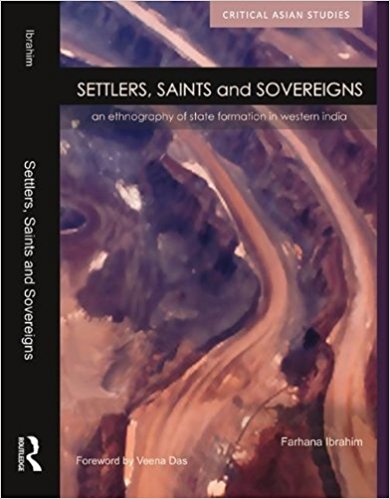The book under review discusses the important western border region of Kachchh, a region that, in a contested fashion is contiguous with all manner of local, state as well as national boundaries. Relatively little scholarship has explored this border in the present. This might be contrasted to the Punjab border, and the distended (in historical as well as scholarly terms) moment of Partition in that region. The latter’s spatio-temporal frame (Punjab, 1947, violence) has dominated the thinking of state and community-formation, movement and minoritization. Ibrahim’s work thus helps move the debate beyond singular events like Partition, and locations like the Punjab, into a more persistent study of border-constitution. One of the chief merits of the work is that though it shifts frame, location and time beyond the merely historically dramatic moments, yet it remains sensitive to politico-historical layerings all the while maintaining anchor in the present and the recent. For example, in the chapter titled ‘Pastoralists, Islam and the State’, Ibrahim parses nostalgia. The past as plenty is a worn trope, but the chapter tiers the nostalgia. Loss is understood as not only a reaction to the increased scrutiny of Muslims in the present, but as the loss of a specific older, intense form of loyalty and worship at dargah circuits embedded within widely-known and shared rich, local narrative contexts.

Anchored in the Present
Nikhil Govind
SETTLERS, SAINTS AND SOVEREIGNS: AN ETHNOGRAPHY OF STATE FORMATION IN WESTERN INDIA by Farhana Ibrahim Routledge, New Delhi, 2012, 215 pp., 650
March 2012, volume 36, No 3
